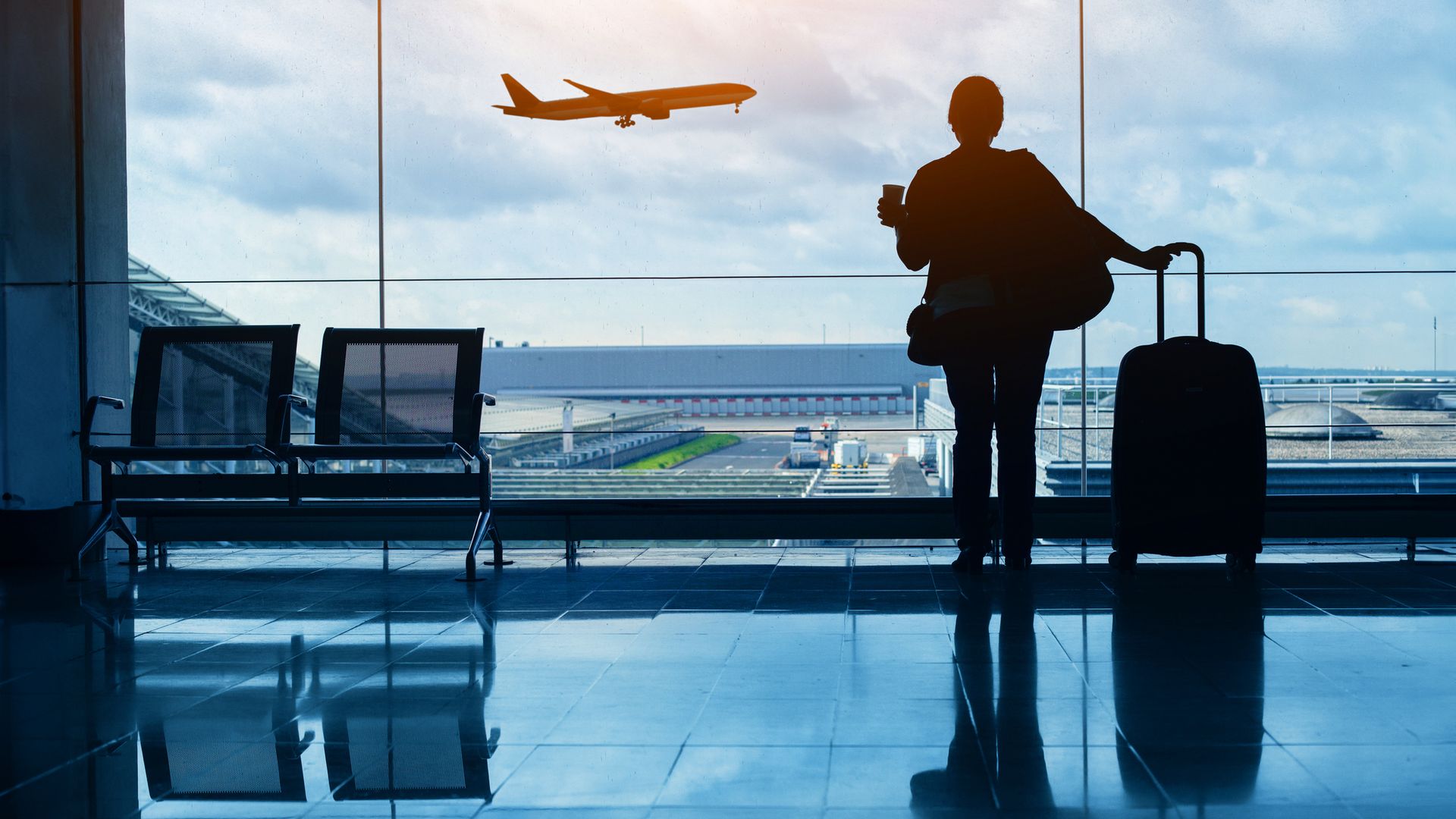A shortage of aircraft and engine construction difficulties could mean consumers face a further two years of record flight prices.
For decades, two major firms have held a tight grip on the aeroplane manufacturing market: Boeing with a 40.6% share and Airbus with the remaining 60.4%. But significant disruption at the former is wreaking havoc around the world.
More than 30,000 workers in Washington and Oregon have been on strike, affecting the production of two key Boeing models, the 737 Max and 777 – and that is before you add in further supply chain issues from COVID and a parts shortage.
As a result, aircraft now take up to five years from the point of order to reaching the runway.
And it’s not just Boeing. The Trent 1000 engine, made by Rolls-Royce, which powers the Boeing 787, is experiencing issues with longevity. Faults and a shortage of parts to make new ones mean there are grounded aircraft around the world awaiting repair.
British Airways and Virgin Atlantic are two of the biggest carriers that have been forced to ground flights, and even remove entire routes from their schedules.
BA will not run its daily London Gatwick to New York JFK route between 12 December and the end of March, while Virgin Atlantic is cutting back on routes to Shanghai, Nassau in the Bahamas and Providenciales in Turks and Caicos, with the final flights for these scheduled to depart in February next year.
Woodbridge named happiest place to live in UK
Break-up of $13bn Adevinta launches with Blacksheep’s Daft swoop
How much does it cost to freeze your eggs and can it go wrong?
Paul Charles, chief executive of the PC Agency and a former director at Eurostar and Virgin Atlantic, says the main issue is that demand far outstrips what airlines can offer.
“There is a shortage of both planes and staff, so airlines are finding it difficult to expand as much as they want to,” he told the Money blog.
“Especially as we are now taking more holidays per year – there is not the capacity to fulfil that demand.”
Read more:
Jaguar boss defends rebrand after backlash
£184m added to value of easyJet after share price boost
The “pains of COVID”, coupled with high inflation, are playing out around the world, and the travel industry is not immune to these pressures. Normally an aircraft takes about three years to be built, but at the moment it is looking like “up to five years instead”.
This “bottleneck in the system” has a “three or four-year impact”, Paul said.
“So we are going to be seeing this bottleneck exist for some time, which means the prices go up because there is more demand for less capacity.”
The latest budget also announced changes to airline passengers, which will affect prices…
Will it get any better?
With no sign of consumers slowing down their appetite for travel, the future is “bright”, Paul said.
“You’ve got runways expanding, you are seeing airports expand around the world – not just in the UK.”
As infrastructure improves and airports embrace new technology (we are “getting to the stage where you won’t need to carry your passport because your eye will be your ID”, Paul says), things will start to look better by 2027.
“Boeing will be back to full-scale production – you’ll find the turnaround time for a new plane speeding up,” he said.
“So in three years, I think, we will be back to a happier travel environment, like we had pre-COVID.”
Until then, we could face price rises of around 5% a year, he says.
Can travellers still find a good deal?
It’s not all bad news if you are still looking to snag a deal.
Katy Maclure, editor of The Detour at Jack Flight Club which works to find discounted flights, said “all signs point to travel recovering in the grand scheme of things”.
“From what we’ve seen, things haven’t been crazy in terms of the cost of flights going up,” she told Money.
“Some destinations, sure. Some destinations are harder to get to or some airlines have pulled out of destinations where there is maybe too much competition for them to be worth it.
“We’ve seen the European airlines one by one pulling out of the Chinese routes – not least because it’s so much further for them to fly because of Russian airspace limitations.”
But she pointed out that budget carriers are expanding faster than ever – last week, EasyJet announced 26 new routes, including its first sub-Saharan service.
A few hacks for saving money
As well as our usual advice of shopping around or being flexible with your travel, Paul offered a few extra hacks to try and get a cheaper price.




